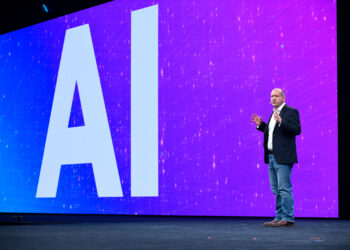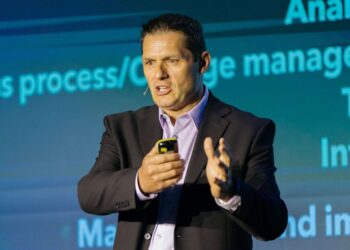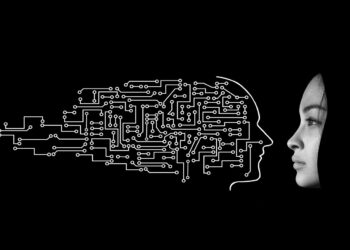A remark at Fortune’s recent Brainstorm AI Singapore conference has sparked intense debate across the tech and public sectors.
Ramine Tinati, Chief AI Officer at Accenture, suggested that giving employees faster tools might simply lead to more coffee breaks rather than measurable productivity gains. It was a refreshingly honest admission from a sector that’s been breathlessly promoting AI transformation, and it highlights what many suspect but few have been willing to admit: companies are pouring millions into GenAI infrastructure with little to show for it.
Last week, that view was further pushed, this time by Massachusetts Institute of Technology (MIT) researchers who warned that the vast majority of AI investments were yielding “zero return” for businesses.
TCS is cutting 12,000 jobs, citing AI-driven “skill mismatches,”. Meanwhile, the Big Four accounting firms have slashed graduate intakes by up to 29%, explicitly linking these cuts to AI’s ability to automate entry-level work. Yet Tinati from Accenture – where GenAI bookings surged two-thirds even as overall Q3 bookings fell 7% – admits that giving employees faster tools might simply lead to more coffee breaks. The productivity gains justifying these cuts remain elusive without what he calls “reinventing the work.” This represents a stark contradiction, suggesting productivity theatre is being played out on a grand scale.
In the public sector, these contradictions are impossible to ignore. When you’re spending taxpayer money, you can’t hide efficiency theatre behind quarterly results. The passionate responses to Tinati’s coffee break statement from those operating in the public sector reveal the perfect storm in the sector: political pressure for AI-driven transformation set against a backdrop of legacy infrastructure that can barely support current operations, and budgets already stretched to breaking point.
James Herbert, CEO of Pivotl, didn’t mince words about the reality: “Random GenAI pilots isn’t even a veneer, it’s just a mess and a symptom of mediocre leadership.” His colleague Paul Kearsey noted the déjà vu with digital transformation – tasks stretching to fill available time rather than generating measurable efficiency.
There are genuine success stories that prove the point. Martin Neale from ICS.AI detailed how Derby City Council achieved £7.5m savings through what he calls an “AI Transformation Program” – crucially, this went beyond tool deployment to implement “an enthusiastic shared vision of the altered state” combined with “obsessive collaborative focus on organisation-wide transformation.” But successes like Derby remain frustratingly rare precisely because they required genuine reinvention.
Meanwhile, government ambitions grow ever more breathtaking. The NHS promises to become “the most AI-enabled health system in the world” while the Ministry of Defence plans AI-enabled decision-making at machine speed by 2027 – despite admitting it carries “intolerable levels of cyber risk.” The Spending Review’s £2bn for AI opportunities feels insignificant against the scale of transformation required.
Defence industry leader Simon Fovargue captured the stakes perfectly: “AI in UK Defence: It’s Not a Tool — It’s a New Operating Model.” Treating it as just a toolkit “risks operational fragility, not advantage.” His prescription – redesign workflows rather than speed up tasks, invest in sovereign structured data, run mission-led pilots – requires precisely what Tinati advocated: fundamental work redesign, not tool deployment.
Scott Armstrong from SITA cut to the heart of why we’re stuck: “Too often, the conversation focuses on superficial productivity gains: I’ve lost count of how many times I’ve been told AI can ‘write an email’ or ‘create a PowerPoint.’ (It can’t, not well enough to matter.)” His vision for AI’s real impact – personalised teaching that adapts to each child, healthcare systems that instantly flag every drug interaction – shows where genuine transformation lies.
The “coffee break” metaphor has struck such a nerve because it captures what we’ve all observed but few have articulated: the gap between AI theatre and genuine transformation. As Dan Bowden from UK Export Finance noted, it “hits on a deeper truth.”
What emerges is clear: we need less AI wishful thinking and more honest conversations about the boring, expensive work of organisational change. The tools exist, the potential is real, but until we move past tool deployment theatre and commit to genuine reinvention, those coffee breaks will multiply – taken by an increasingly diminished workforce promised productivity gains that never materialised.
The choice is stark: reinvent the work or multiply the coffee breaks. But reinvention requires investment, leadership courage, and acknowledgment that AI transformation means organisational transformation. Until then, we’re stuck between the coffee breaks and the consultancy bills.















